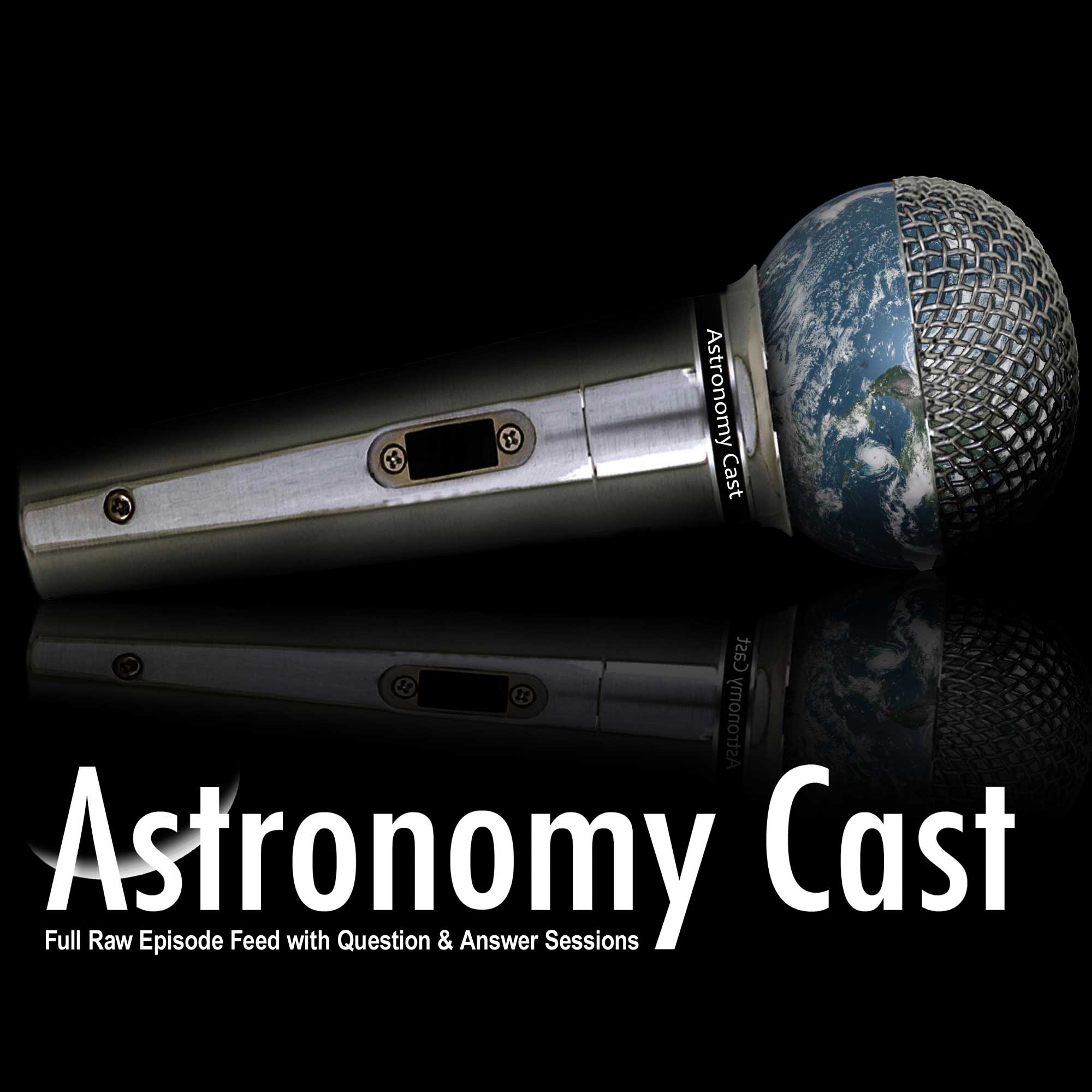
365 Days of Astronomy - Weekly Edition
The weekly podcast from the International Year of Astronomy 2009. This podcast comes out weekly and includes each daily episode of the 365 Days of Astronomy Podcast.
- Update frequency
- every 7 days
- Average duration
- 55 minutes
- Episodes
- 329
- Years Active
- 2017 - 2025

Ep. 605: Sounding Rockets
Last week we talked about balloon-based astronomy. This week we're gonna talk about putting telescopes on rockets and making observations mid flight. Welcome to the wild world of sounding rockets.

Ep. 604: Balloon Astronomy
So when you think about the world's observatories, I'm sure you're imagining huge telescopes perched atop mountain peaks or space telescopes like Hubble. But you might be surprised to learn that some…

Ep. 603: New Colors of the Radio Spectrum
Last week we talked about how new telescopes and techniques are allowing astronomers to explore the shortest wavelengths of light. This week we go to the other end of the electromagnetic spectrum and…

Ep. 602: The New Colors of Gamma Rays - Getting Shorter
The Earth's atmosphere protects us from a Universe that is definitely trying to kill us. But it also blocks our view of the entire cosmos, like seeing X-rays and gamma radiation. Space telescopes are…

Ep. 601: Unexpected Light Pollution
Day by day we're loosing our connection with the night sky. Already one third of humanity lives in so much light pollution that they can't see the Milky Way without a drive. And now satellite constel…

Ep. 600: Looking Ahead
Today we are gonna gaze into the future of space and astronomy. What upcoming missions & events are we excited about?

Ep. 599: Zodiacal Light
Pamela has told us in the most flowery terms about the diffuse dust across the inner solar system left over from the formation of the inner planets. well, it turns out she was wrong. Super wrong. Tim…

Ep. 598: How You Could Overturn Cosmology
You've probably heard of dark matter and dark energy, but maybe you don't fully understand what they are. Or maybe the idea itself just rubs you the wrong way and you'd like to know why scientists th…

Ep. 597: The Expansion of the Universe
It's been a while since we checked to make sure the Universe was still expanding. Yeah, apparently, that's still a thing. But in the last few years powerful new telescopes and expansive surveys have …

Ep. 596: The Universe’s Background Noise
You might be familiar with the cosmic microwave background, but that's just one of the background radiations that astronomers look at. Some are well known and cataloged. While others are just startin…

Ep. 595: Planet Hunting - Revisited
This is gonna be another one of those evergreen topics where we come back again and again. Finding planets. Every time we talk about this now it seems like we've gained thousands of new planets. Well…

Ep. 594: Juno - Primary Mission Highlights
Pamela is always loath to talk about spacecraft until the mission's in space and the science is rolling. NASA's Juno Mission just received a mission extension, adding Jupiter's moons to the menu. Now…

Ep. 593: Stellar Parasites
Stars often come in groups of 2 or more. And if they're orbiting close enough to each other one star can feast on the other and when that happens, well, mayhem ensues!

Ep. 592: Gamma-Ray Bursts - Updated
Some of the most powerful explosions in the Universe are gamma-ray bursts, capable of blasting a beam of death half way across the galaxy. In just the last few years astronomers have discovered a tre…

Ep. 591: What Are We Gonna Do With All That Space Junk?
Remember the good old days when there were only a few thousand living and dead satellites? Well, those days are long over. We're now entering an era where there will be tens of thousands of satellite…

Ep. 590: Lunar Hazards: Dust, Radiation and More
2024 can't come soon enough. You know, that's the year when humans will set foot on the Moon again. Now don't you roll your eyes! That's the plan. Unless the plan changes. But my point is, explorers …

Ep. 589 - Lunar Resources: Water (Update) & Other Volatiles
We've talked about the Moon and its water many times here on Astronomy Cast, but there've been a bunch of big updates thanks to new research from NASA and others. Today we're gonna give you an update…

Ep. 588 - Lunar Resources: Lava Tubes
All eyes are on the Moon. We're going back, this time to stay, right? One of the best resources on the Moon will be the lava tubes that criss-cross the subsurface of the Moon. These can provide prote…

Ep. 587: The Artemis Accords
So the Moon is about to become a very busy place with multiple countries and private companies planning missions in the next few years. It's been decades since the Outer Space Treaty was negotiated. …

Ep. 586: Life As We Know It: Habitable Exoplanets & Extremophiles
As scientists continue to explore the Earth, they're discovering life, surviving and even thriving in extreme environments. What hints can this give us about what we might find as we search for live …